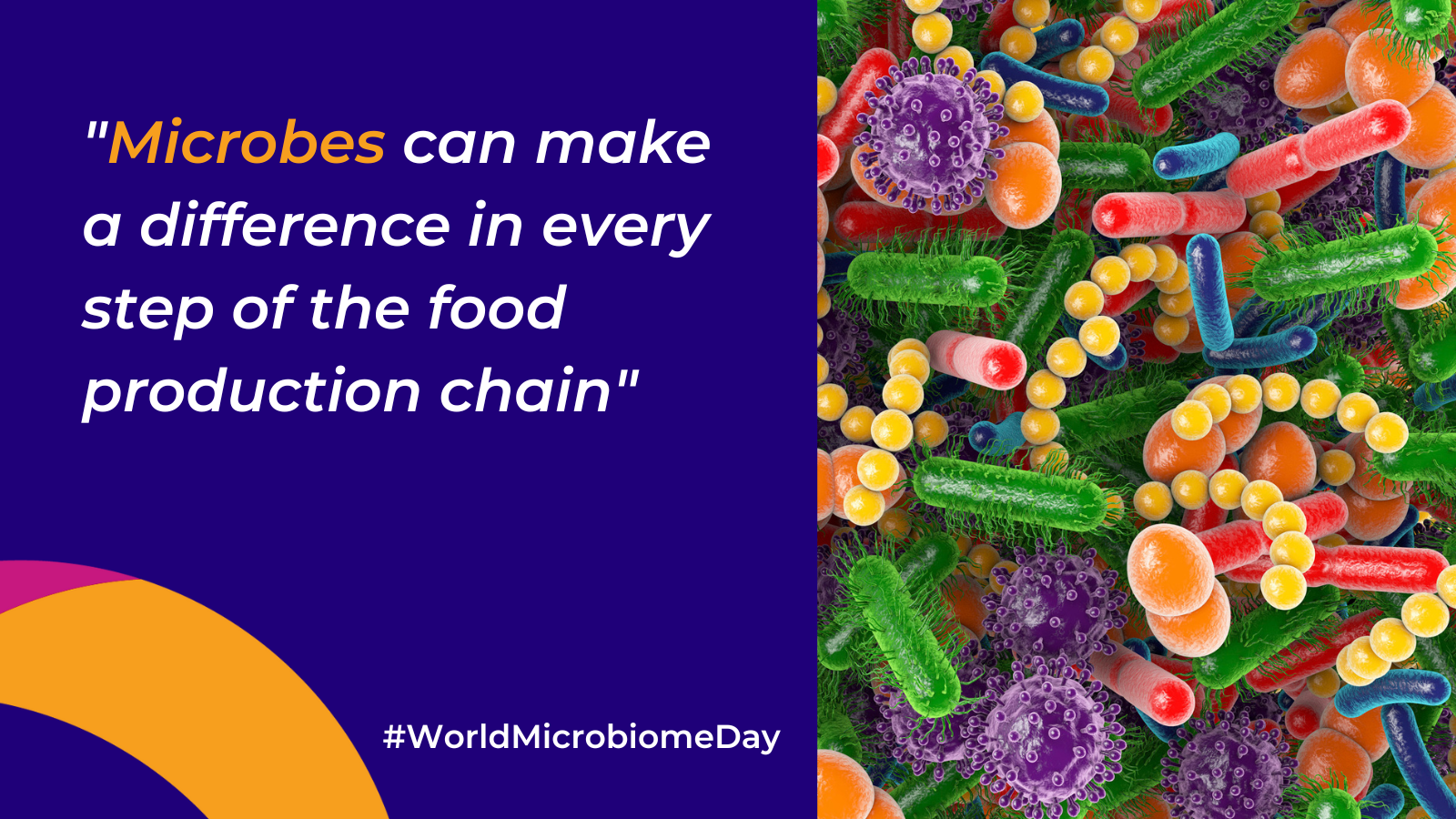
In the world of food production, microbes are the unsung heroes and potential villains. They have a significant impact on the quality, safety, and sustainability of our food. As we delve into the intricacies of our food production system, we increasingly recognize the interplay between its various sectors and their impact on the overall health of people, animal and the environment. In this holistic approach, known as One Health, microbes play a special role as we strive to strike a balance between reaping the benefits they offer and mitigating the potential risks they pose.
Microbes are omnipresent in the guts of animals and can contaminate primary food products like meat, fish, milk, and eggs. Whether it's on the farm, like during the milking process, or in the controlled environment of a slaughterhouse, these tiny organisms can wreak havoc. Some of these microbes are zoonotic pathogens, such as Salmonella and Campylobacter, capable of causing foodborne illnesses in humans. Others may not be directly harmful but can spoil the sensory qualities or negatively impact the shelf life of food items. To make matters worse, certain microbes (even non-pathogenic ones) carry antimicrobial resistance genes, leading to the rise of antibiotic-resistant foodborne pathogens. Through fertilization with animal manure, these genes can be transferred to soil, water, plants, and eventually end up in our own gut, posing a potential threat of further dissemination of antimicrobial resistance.
The food industry plays a critical role in ensuring the safety of our food. During processing, measures are taken to destroy or inhibit the growth of pathogenic and spoilage microbes. Techniques such as heating, cooling, and fermentation are employed to minimize risks. However, even in the controlled environment of food processing, new challenges arise. Pathogens like Listeria monocytogenes and spore-forming bacteria can be introduced, demanding constant vigilance and meticulous cleaning and disinfection practices.
To effectively tackle the problem, it is crucial to pinpoint the most effective parts of the food production chain for intervention measures. The integration of smart and rapid biosensors in the food industry and farming is a promising avenue for detecting harmful microbes, identifying their sources, and evaluating the efficacy of cleaning and disinfection processes. By unravelling the mysteries of multispecies biofilms – communities of microbes that contribute to contamination events – researchers are gaining insights into the key microbial players and discovering innovative ways to prevent and clean them. Additionally, metagenomic research offers a deeper understanding of gut microbial profiles associated with pathogen colonization. This knowledge paves the way for the development of novel probiotics with preventive effects in animal farming, reducing the reliance on veterinary antibiotics.
While probiotics have long been consumed by humans, their application in animal farming is a relatively new frontier. By exploring different age-specific animal models, such as pigs, researchers are making significant strides in understanding how probiotics and fermented food interact with the intestinal barrier, a crucial aspect of human health. Furthermore, carefully selected microbes (micro-algae, bacteria or yeasts), produced as single-cell protein, are poised to become an integral part of our diet, offering new sustainable and nutritious options.
Microbes can make a difference in every step of the food production chain. Adopting a One Health approach is essential to harnessing their benefits while safeguarding our own well-being and that of our planet. By recognizing the intricate interplay between the various sectors and prioritizing the health not only of humans but also of the animals and the environment, we can shape a food production system that is not only safe and sustainable but also resilient in the face of microbial challenges.
by Prof. Marc Heyndrickx, ILVO (Belgium)
Scientific Co-chair of the ILSI Europe Probiotics Task Force.